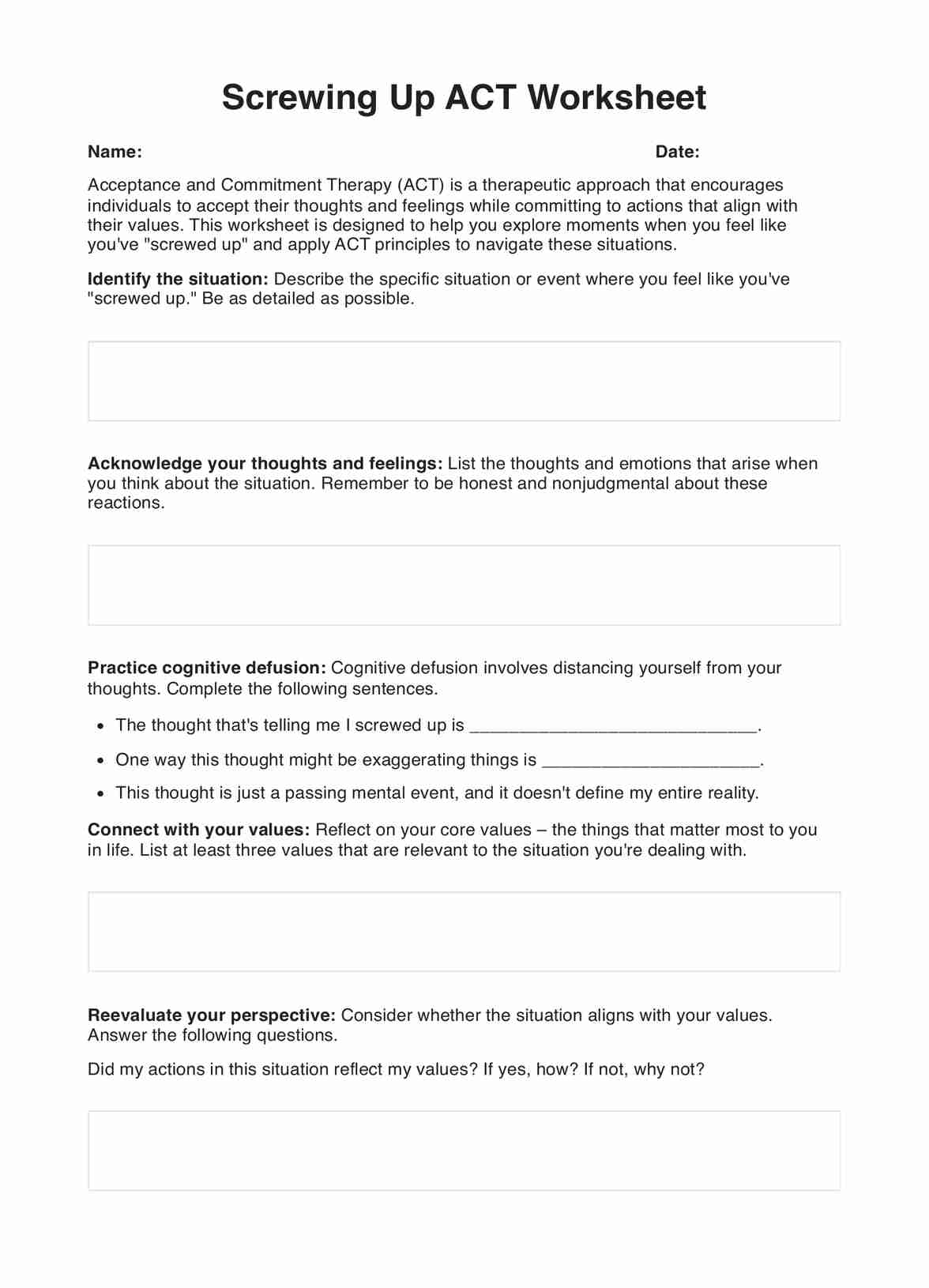The time it takes to complete the worksheet will vary from person to person, depending on how quickly they can reflect and answer the questions. A client should take approximately 30 minutes or less to work through the entire worksheet.

Screwing Up ACT Worksheet
Access a free Screwing Up ACT Worksheet for your practice. Download the PDF and get an example to work with.
Screwing Up ACT Worksheet Template
Commonly asked questions
The Screwing Up ACT Worksheet is designed to help people gain insight into their behavior and how they respond to challenging situations. By reflecting on the questions in the worksheet, clients can better understand their thoughts, feelings, and reactions, allowing them to make more conscious choices going forward.
The Screwing Up ACT Worksheet is best used when someone wants to understand why they behave a certain way in certain situations. It can also benefit people who struggle with making mindful choices and want to learn how to manage their emotions better.
EHR and practice management software
Get started for free
*No credit card required
Free
$0/usd
Unlimited clients
Telehealth
1GB of storage
Client portal text
Automated billing and online payments











